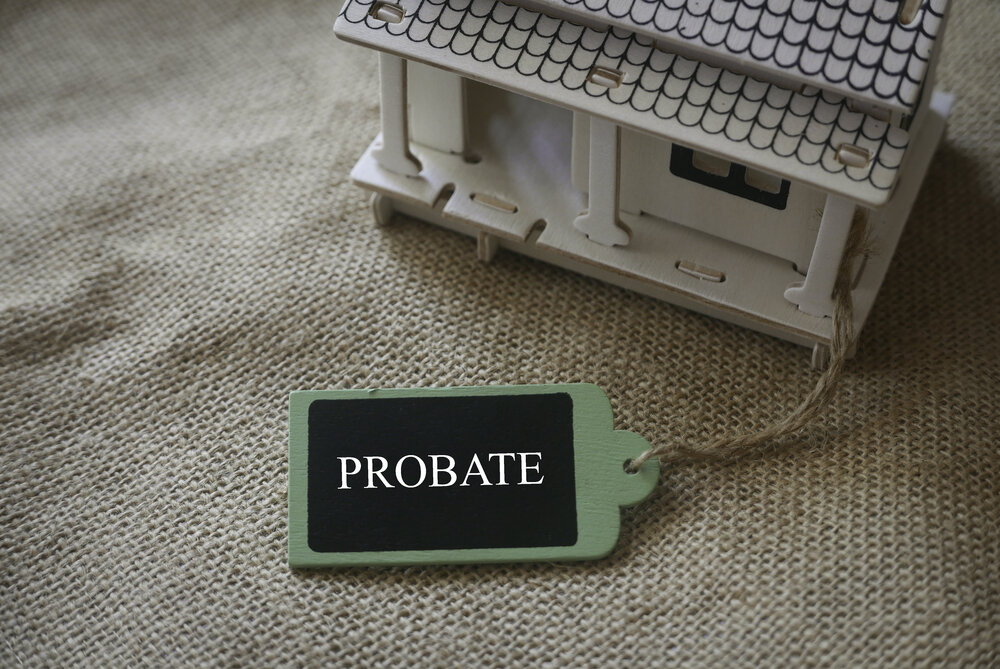Need To Sell Your House Fast In Pueblo?
We buy houses in Pueblo In ANY CONDITION! We pay CASH and you will not pay any commissions, agents, or fees. Put your address and email below and answer 5 easy questions on the next page to get a cash offer Within A Few Hours!
Selling a house with a beneficiary deed in Pueblo Colorado brings unique considerations. This article immediately dives into the crucial strategies and legal nuances that empower property owners, detailing the path to a successful sale and how it impacts beneficiaries. Discover what you need to know about this distinct, streamlined process unique to Pueblo Colorado, from initial thought to closing the deal.
Key Takeaways
- A beneficiary deed allows Pueblo Colorado property owners to bypass the probate process, ensuring real property transfers directly to beneficiaries upon the owner’s death, which can be revoked or changed anytime before the owners death.
- You can sell your property in Pueblo Colorado, even if you’ve placed a beneficiary deed on it; such a deed doesnt restrict your ownership rights, and the sale proceeds without the need to notify or get consent from beneficiaries.
- While no state inheritance tax is levied in Colorado for property received through a beneficiary deed, be mindful of federal estate taxes and capital gains tax implications, and consider seeking advice from professionals like estate lawyers and tax advisors.
Understanding Beneficiary Deeds in Colorado
In the realm of Colorado real estate, a beneficiary deed is a powerful instrument that allows property owners to decide who inherits their property after their death. This legal document, once notarized and recorded with the county recorders office, becomes a part of the properties legal description.
One common question is, what happens if there are contradictory terms in my will? The answer is straightforward – the beneficiary deed takes precedence, overriding any contradictory terms in your will regarding property transfer after your death.
What is a Beneficiary Deed?
A beneficiary deed, also known as a transfer-on-death deed or a tod deed, is a special type of property deed prevalent in Colorado. The magic of this deed lies in its ability to transfer real property to the selected beneficiaries automatically upon the owners death, completely bypassing the probate process.
The deed must incorporate â conveys on death or transfers on death terminology to ensure the transfer is effective upon the owners death. Furthermore, it must be recorded with the county clerk and recorders office for legal validity, which is a crucial step when dealing with transfer on death deeds.
Benefits of Using a Beneficiary Deed
The star of the show the beneficiary deed comes with a host of benefits. The big win? It helps avoid the often lengthy and costly process of probate for the property specified. This means a seamless transition of property ownership without the complications typically associated with the probate process.
Imagine the simplicity of transferring your property to your loved ones, sparing them the legal complexities of probate. Its a beneficial situation, isnt it?
Limitations and Considerations
While the beneficiary deed is a fantastic tool, s not a one-size-fits-all solution. For instance, it can create complications when multiple beneficiaries are involved, requiring consensus for property-related decisions. Also, for properties co-owned under joint tenancy as joint tenants, the beneficiary deed only kicks in if the owner who created the deed is the surviving joint tenant.
But the good news? Beneficiary deeds can be revoked or changed during the owners lifetime to accommodate changes in the owners wishes. Just remember, recording fees vary by county, so make sure to record the deed in the correct county where the property is located.
Selling a Property with an Existing Beneficiary Deed
Youve got a beneficiary deed in place, but now you want to sell your property. No problem! You can absolutely sell your property even if a beneficiary deed is in place. Upon the sale of the property, the existing beneficiary deed becomes irrelevant as the property will not be part of the deceased owners estate.
Seems simple, doesn’t it explore further.
Rights of the Property Owner
As a property owner in Colorado, you retain full control over your property, even with a Colorado beneficiary deed in place. You can sell it, mortgage it, or even host a grand garden party “ all without a hitch! Having a beneficiary deed in place does not tie your hands or restrict your ability to make transactions or incur debts with the property.
Plus, the beneficiaries named in the deed have no entitlement to proceeds or the right to challenge the sale of the property before your death. Its quite liberating, wouldnt you agree?
Notifying the Beneficiary
A pressing question when selling a property with a beneficiary deed is, Do I have to notify the beneficiary? The answer is no. Colorado law does not legally require the property owner to notify the beneficiary before selling the property. You can proceed with the sale without the beneficiarys consent or even knowledge. However, keep in mind that consequences can arise if the beneficiary is unaware of the property sale.
Therefore, although its not a legal requirement, transparent communication is always a wise approach.
Impact on the Beneficiary
What does the sale mean for your beneficiary? Well, if you sell the property before your death, the beneficiary deed is effectively revoked, and the beneficiaries anticipated interest is removed. The beneficiary wont retain any rights or interests in the property once it has been sold prior to your death. Plus, they have no legal claim to the property or the proceeds from the sale.
Therefore, while beneficiary deeds provide a straightforward inheritance process, they dont grant beneficiaries any rights to the property if its sold during your lifetime.
Steps to Sell a House with a Beneficiary Deed in Colorado
Now that you have a good grasp of beneficiary deeds, lets navigate the process of selling a house with a beneficiary deed in Colorado. Its less intimidating than it appears.
Preparing the Property for Sale
The first step is preparing the property for sale. You’ll want to address any title issues, such as clarifying how the property is titled and determining the rights of potential heirs. You also need to ensure that all property taxes and any debts or liens against the property are paid and satisfied to clear the title before sale.
If you decide to co own property, make sure all owners are on the same page about how to proceed with the sale. In a co ownership situation, its essential to spruce up the property to make it appealing to potential buyers.
Marketing and Listing the Property
Next, we focus on marketing and listing the property. When listing, complete transparency about the presence of a beneficiary deed is crucial to potential buyers to avoid any future legal disputes. And as for marketing, remember to highlight the properties features and advantages. Also, address the emotional ties associated with the properties transition stemming from the owners passing. A bit of empathy can go a long way!
Navigating the Closing Process
Once a buyer is in the picture, its time to guide you through the closing process. If the property was owned jointly, youll need to work cooperatively with other joint tenants to decide on property repairs, who will pay for them, and which offers to accept. Then, complete the necessary paperwork and sign the deed to the new owners.
If this all seems a bit overwhelming, consider seeking assistance from Certified Probate Real Estate Specialists who specialize in probate real estate transactions and can help navigate probate court proceedings.
Revoking or Modifying a Beneficiary Deed Before Selling
You might question, What if I need to revoke or modify my beneficiary deed before selling?Fortunately, Colorado law accommodates such changes.
Lets explore the details.
Reasons for Revoking or Modifying
There could be several reasons why you might want to revoke or modify a beneficiary deed before selling. For instance, you may need to manage the propertys title effectively or address your personal or financial needs.
In Colorado, selling your property to a third-party for value is considered a revocation of a beneficiary deed for title insurance purposes. And if you’re applying for Medicaid, you may be required to revoke your beneficiary deed to allow the Department of Social Services to place a lien on the home for services provided.
Revocation Process
To revoke a beneficiary deed in Colorado, you need to record a formal revocation document or a new beneficiary deed that names different beneficiaries with the county clerk and recorder’s office. Important to note, a will attempting to alter or revoke a beneficiary deed doesnt cut it in Colorado.
If a new beneficiary or Transfer on Death deed is executed and recorded, it automatically revokes any prior recorded deed for the same property, with the latest execution date taking precedence.
Modifying a Beneficiary Deed
If youd like to modify a beneficiary deed instead, youll need to record a new beneficiary deed with the county clerk and recorder. This new deed should specify any changes to the original terms.
For example, if you want to alter beneficiary share proportions or include contingency plans in case a beneficiary predeceases you, you’ll need to record a new beneficiary deed.
Tax Implications of Selling a House with a Beneficiary Deed
Now, let’s address the unavoidable issue – taxes. Indeed, selling a house with a beneficiary deed in Pueblo Colorado does entail some tax implications.
Capital Gains Tax
Firstly, we need to consider capital gains tax and property tax. This tax applies to the sale of the property and is based on the difference between the selling price and the stepped-up basis – thats the properties fair market value at the time of the owners death. So, if you sell the property at a higher price than its market value at the time of the original owners death, you may have to pay capital gains tax. If this sounds a bit complex, dont worry. A tax advisor can guide you through the maze of capital gains tax liabilities.
Inheritance Tax
Secondly, we should consider inheritance tax. Beneficiaries receiving property through a beneficiary deed in Colorado are not subject to any state inheritance tax. Phew, thats a relief! But hold your horses, because beneficiaries may be subject to federal estate taxes if the total value of the estate surpasses the federal estate tax exemption amount. So, while theres no state inheritance tax, there might be federal taxes to consider.
Seeking Professional Assistance
We’ve touched on many aspects, and it might appear rather complex. This is where the role of professional assistance becomes crucial. By consulting experts like an estate planning lawyer, a tax advisor, and a real estate agent, you can navigate the complexities of selling a house with a beneficiary deed in Colorado with confidence.
Estate Planning Lawyer
A qualified estate planning lawyer can help you with:
- Drafting the language in a beneficiary deed
- Ensuring adherence to legal formalities
- Clarifying your rights and responsibilities
- Guiding you through complex scenarios, like dealing with multiple beneficiaries or beneficiaries who are minors.
If youre considering the sale of a property with a beneficiary deed, consulting with an estate planning attorney ensures all aspects of your estate plan are aligned and the property transfer occurs as intended.
Tax Advisor
When it comes to tax implications, a tax advisor is your best friend. This professional can guide you and your beneficiaries on strategies to lessen tax burdens while ensuring adherence to federal and state tax laws.
Real Estate Agent
Finally, a well-informed real estate agent can be of immense value when selling a property under a beneficiary deed in Colorado. They can assist in:
- setting the right sale price
- creating effective listings
- negotiating offers
- offering tailored advice on aspects like the propertys market value and the implications of the beneficiary deed.
Summary
In a nutshell, beneficiary deeds are a powerful tool in Colorado real estate, allowing property owners to designate a beneficiary who inherits the property upon their death, bypassing the probate process. While selling a property with a beneficiary deed involves several steps and considerations, its by no means an impossible task. With the right professional assistance and a clear understanding of the process, you can navigate the sale smoothly and efficiently. Heres to simplifying real estate transactions!
Frequently Asked Questions
What are the rules of a beneficiary deed in Colorado?
In Colorado, for a beneficiary deed to be effective, it must contain specific language indicating the transfer is to be effective on the owner’s death, and it must be notarized and recorded with the clerk and recorder’s office.
How do you revoke a beneficiary deed in Colorado?
To revoke a beneficiary deed in Colorado, you need to execute an instrument describing the affected property, revoke the deed, and record it with the County Clerk and Recorder before your death.
Does Colorado have a transfer on death deed?
Yes, Colorado allows real estate to be transferred through a Transfer on Death (TOD) or beneficiary deed, which lets the property owner designate a beneficiary to inherit the property without going through probate.
Can I sell my property if a beneficiary deed is in place?
Yes, you can sell your property even if a beneficiary deed is in place in Colorado.
Do I need to notify the beneficiary before selling the property?
No, you are not required to notify the beneficiary before selling the property, based on Colorado law.








